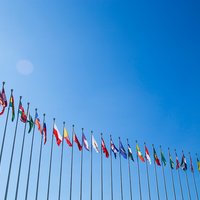Re-Orienting the UN climate Conferences Towards Implementation of Climate Action
Wolfgang Obergassel, Lukas Hermwille and nine co-authors publish article in online journal WIREs Climate Change

Wolfgang Obergassel, Lukas Hermwille and nine co-authors publish article in online journal WIREs Climate Change

The gap between the internationally agreed climate objectives and actual action looms large. In the new article "From regime-building to implementation: Harnessing the UN climate conferences to drive climate action," published in the online journal WIREs Climate Change, Wolfgang Obergassel and Dr. Lukas Hermwille from the International Climate Policy Research Unit at the Wuppertal Institute, together with nine other researchers explore how the Conference of the Parties (COP) to the United Nations Framework Convention on Climate Change (UNFCCC) could develop to promote more effective climate policy.
The article argues that promoting implementation of climate action could benefit from focusing more on individual sectoral systems, such as energy, transport, agriculture etc., particularly for mitigation. So far, the UNFCCC process has to a large extent focused on discussing economy-wide emission targets. However, it is the individual sectoral systems that constitute the communities of action that are most relevant for curbing emissions. The article considers five key governance functions of international institutions to discuss how the COP and the sessions it convenes could advance implementation of the Paris Agreement.
- They may provide Guidance and signalling on long-term visions and goals, such as the objectives of the Paris Agreement or specific sectoral goals, targets or initiatives pledged at COP sessions;
- Rules and standard setting on the behaviour of the institutions' members;
- Transparency and accountability to identify and address problems pertaining to compliance with agreed goals, rules and standards;
- Means of implementation such as financial, technological and capacity building support to enable the institutions' members and pertinent sectoral actors to deliver on their stated intentions, such as the defined climate targets;
- Knowledge and learning to promote the generation and diffusion of solutions to address the problem at hand throughout the sectors.
"The COP and its sessions are a mega-event of global climate governance and an opportunity to promote sectoral climate action across all five governance functions. Harnessing these opportunities will require stronger involvement of the various national ministries and non-Party stakeholders in the COP process," states Wolfgang Obergassel.
The article "From regime-building to implementation: Harnessing the UN climate conferences to drive climate action" in the latest issue of WIRES climate change is available free of charge under the link below.
